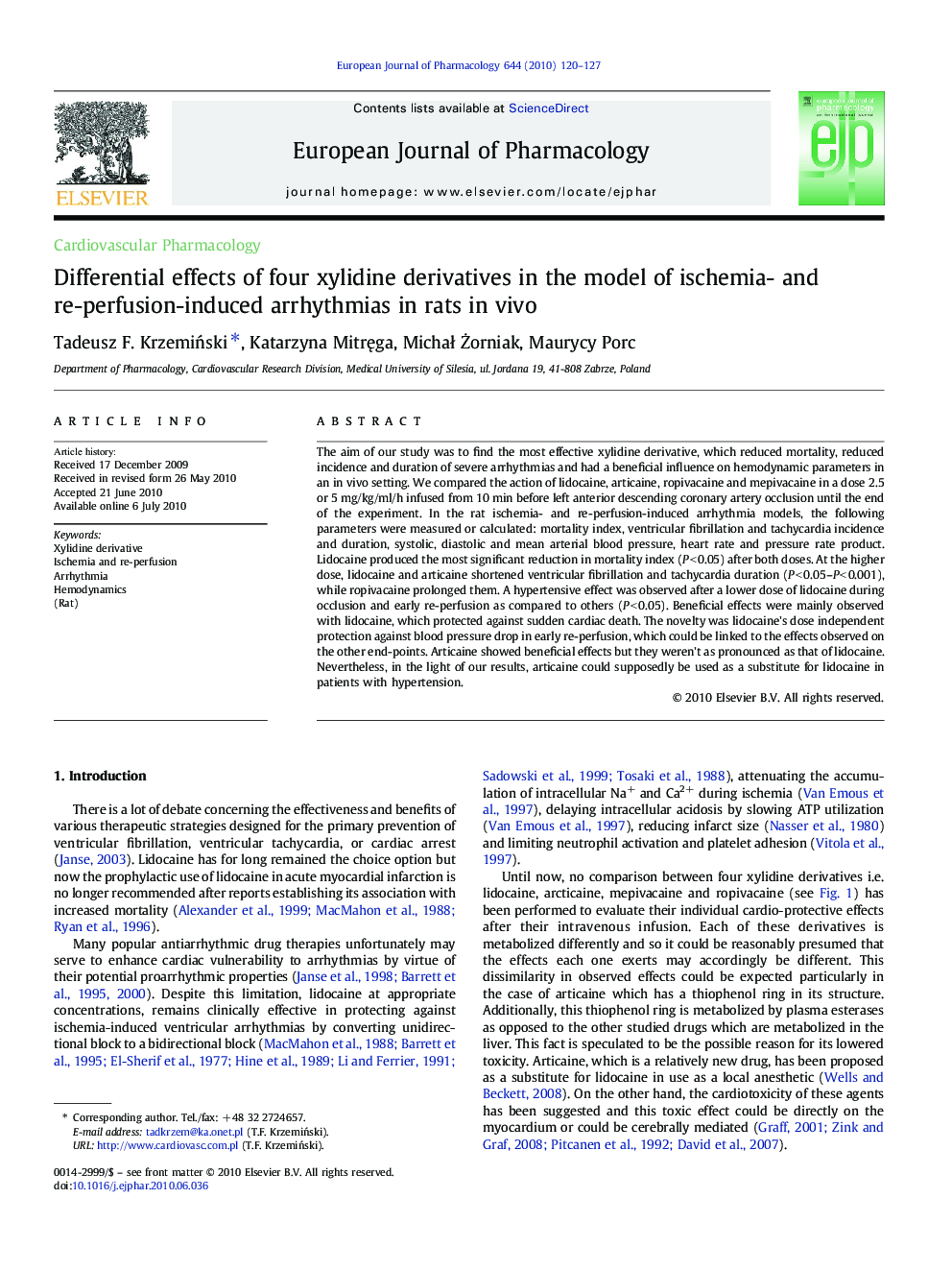| Article ID | Journal | Published Year | Pages | File Type |
|---|---|---|---|---|
| 5830543 | European Journal of Pharmacology | 2010 | 8 Pages |
Abstract
The aim of our study was to find the most effective xylidine derivative, which reduced mortality, reduced incidence and duration of severe arrhythmias and had a beneficial influence on hemodynamic parameters in an in vivo setting. We compared the action of lidocaine, articaine, ropivacaine and mepivacaine in a dose 2.5 or 5Â mg/kg/ml/h infused from 10Â min before left anterior descending coronary artery occlusion until the end of the experiment. In the rat ischemia- and re-perfusion-induced arrhythmia models, the following parameters were measured or calculated: mortality index, ventricular fibrillation and tachycardia incidence and duration, systolic, diastolic and mean arterial blood pressure, heart rate and pressure rate product. Lidocaine produced the most significant reduction in mortality index (PÂ <Â 0.05) after both doses. At the higher dose, lidocaine and articaine shortened ventricular fibrillation and tachycardia duration (PÂ <Â 0.05-PÂ <Â 0.001), while ropivacaine prolonged them. A hypertensive effect was observed after a lower dose of lidocaine during occlusion and early re-perfusion as compared to others (PÂ <Â 0.05). Beneficial effects were mainly observed with lidocaine, which protected against sudden cardiac death. The novelty was lidocaine's dose independent protection against blood pressure drop in early re-perfusion, which could be linked to the effects observed on the other end-points. Articaine showed beneficial effects but they weren't as pronounced as that of lidocaine. Nevertheless, in the light of our results, articaine could supposedly be used as a substitute for lidocaine in patients with hypertension.
Keywords
Related Topics
Life Sciences
Neuroscience
Cellular and Molecular Neuroscience
Authors
Tadeusz F. KrzemiÅski, Katarzyna MitrÄga, MichaÅ Å»orniak, Maurycy Porc,
